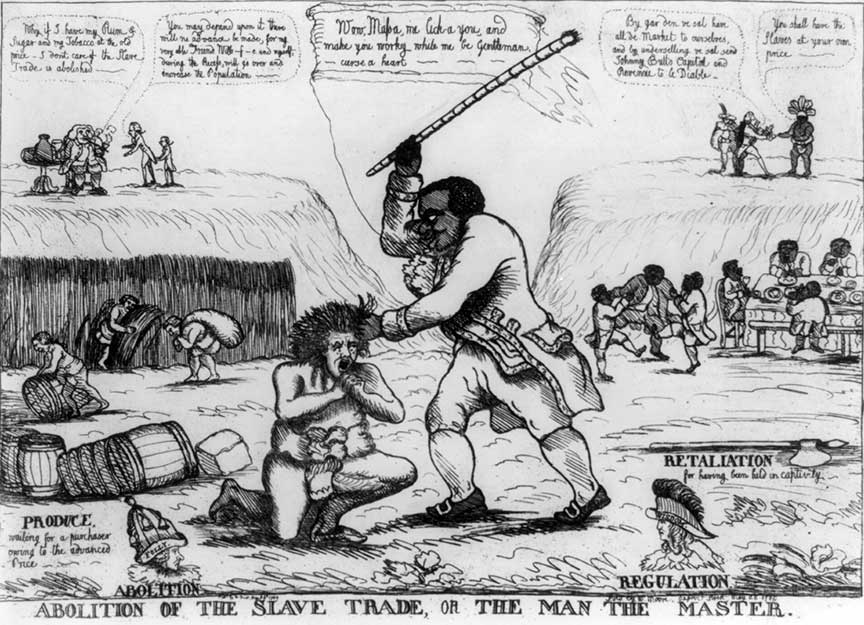Slave Importation Banned

Cartoon to abolish slave trade
In March 1807, the Congress passed a law prohibiting the importation of slaves into the United States. The law carried a fine of $800 for knowingly buying an illegally imported slave to $20,000 for equipping a slave ship. The law was poorly enforced and often violated.
There was growing pressure to end the slave trade. During the Revolutionary War, the colonies promised to end their involvement in the Atlantic slave trade, and most of the colonies did. After the war, four Southern states allowed the slave trade, but three of them soon banned it. Only South Carolina officially allowed the trade.
On March 22, 1794, Congress passed the Slave Trade Act of 1794, making it illegal to use American ships for any part of the slave trade. One person was tried and convicted under the act, John Brown, from Providence, Rhode Island. On August 5, 1797, he was convicted and was forced to give up his ship, the Hope to the Federal government.
When the Mississippi Territory was created in 1798, Congress exempted the territory from the provisions of the Northwest Ordinance that prohibited slavery. Congress passed the Slave Trade Act of 1800, which made it illegal for US citizens to invest in the slave trade or for any US citizen to work on ships involved in the slave trade.
There was, however, growing consensus that more had to be done. In 1805 Joseph Varnum submitted a constitutional amendment that would have abolished the slave trade. It was initially set aside.
President Thomas Jefferson, in his annual message to Congress on December 2, 1806, wrote:
I congratulate you, fellow citizens, on the approach of the period at which you may interpose your authority constitutionally, to withdraw the citizens of the United States from all further participation in those violations of human rights which have been so long continued on the unoffending inhabitants of Africa, and which the morality, the reputation, and the best interests of our country, have long been eager to proscribe
With the Presidents blessing, Barnum pushed legislation through Congress. On March 2, 1807, President Jefferson signed into law, The Act Prohibiting Importation of Slaves of 1807. The act prohibited the import of slaves into the United States.
It was hoped the act might bring the eventual end of slavery into the United States. But unfortunately, it did not even succeed in ending the import of slaves. Tens of thousands of slaves were smuggled into the US from Florida and Texas before they became states. In addition, thousands of slaves were smuggled into the country. In 1818 slave trading became a crime punishable by death. Between its enactment and the Civil War, 74 cases were brought, but the result was relatively small fines in most cases. In 1862 however, Nathaniel Gordon was hung for participating in the slave trade.
 >
>